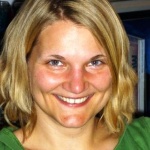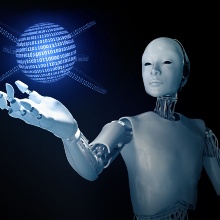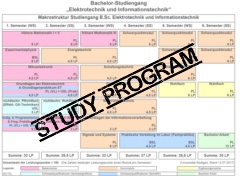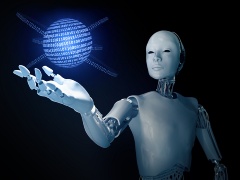PLEASE WATCH OUT!!! Do not confuse the English taught M.Sc. Computer Science with the German taught M.Sc. Informatik (translated into English also called Computer Science)! Avoid a mix-up by choosing the correct semester when applying! Read more about this in our mini-guide!
The Master Program Computer Science
The University of Stuttgart is one of the international well-established research universities in the field of Computer Science. Since the winter term 2013/2014, we offer the English Master’s Program in Computer Science for 40 master students per year. This program covers various scientific fields such as autonomous systems, robotics, visual computing, service technology and engineering, database systems, parallel as well as distributed systems just to name a few of them.
The classes of M.Sc. Computer Science are held in English. The regular supply of the required modules – core modules, extended modules and breadth modules – is ensured by the Department of Computer Science. The elective courses offered are partially shared with the two German master's programs "Informatik" (engl. "Computer Science") and Software Engineering. Thus, there is the possibility to attend German classes as well as a part of the Elective catalogue.
Study Profiles (Majors)
At the start of the Master program each student has to decide for one of three study profiles or majors – "Autonomous Systems", "Service Technology and Engineering" and "Visual Computing". The theoretical and methodological foundations as well as the core and extended modules are specific for each profile and can be chosen from the respective catalogs. Information about the content of each profile can be found below.
Combining the breadth of a traditional course of study with the specialization in one of theses highly attractive majors, the master's Degree Program in Computer Science is perfectly suited to obtaining an excellent education. The program also constitutes a good opportunity to qualify for a PhD program in the case of an outstanding degree.
If you want to get a detailed overview over seminars and lecture that belong to each of the offered profiles, you can also take a look at the handbook of modules for the current semester. This document is the basis for the program taught in each semester. However, not all lectures and seminars are offered each semester.
Autonomous Systems can assist humans in dangerous environments or manufacturing processes and have already become a substantial part of our everyday life with learning spam filters, learning recommender systems on commercial websites and trading algorithms. Most major IT companies like Google, Microsoft or Yahoo have already setup large Machine Learning research departments to remain competitive in the commercial exploitation of large scale user data. Automotive industry is pressing research on autonomous cars. Energy industry investigates into smart grids and intelligent power units to autonomously decide on energy consumption, production and storage. The fact that industrial products are no more static solutions but adaptive, reactive and able to learn from humans and the enormous data available requires a transitional change in the needed technologies. In the future, autonomous systems will be integrated in most hardware systems that are able to learn to fulfil flexible tasks in everyday life and industrial environments. The Major in Autonomous Systems in Computer Science combines education in machine learning, artificial intelligence, decision making & planning and robotics based on technical systems with sensors & actuators, hardware and software systems as well as parallel and distributed computing resources.
With various lectures in the field of:
- Theory of Autonomous Systems
- Sensors and Hardware Systems
- Machine Learning
- Parallel and Distributed Systems
- Embedded Systems
This major covers the entire field of autonomous systems in theory and practice thus provides an excellent opportunity for specialization within the international Computer Science master's program.
Services play an increasingly important role in society, and more and more businesses are rooted in, and shaped by, this idea. The service sector makes up the largest part of the national economies in most high-wage countries. Enterprises gain competitive advantages by offering services, and they join forces with other providers in order to deliver competitive products and services. The goal of this study program in Service Technology and Engineering is to provide the scientific and technological foundations of services, to enable people to conduct research in the services field, as well as to train them in the design and maintenance of service-oriented platforms and solutions. This program conducts rigorous research on models, theories, technologies and applications, thereby building the basis for future service provision that allows organizations to create added value for customers and shareholders. A unification of theories and methods from IT-related disciplines is required to address the analysis, design, construction, monitoring, testing and evolution of services in general and service networks in particular.
Next-generation service engineers need a deep insight into service orientation as well as trans disciplinary thinking. This program addresses these dimensions by organizing its education program along service technologies for the entire service lifecycle as well as along important application domains. This allows graduates to play a leading role in driving the evolution of the service economy through innovation.
The program tightly integrates important disciplines of computer science, ranging from formal methods to service technology to software engineering. It targets application domains such as mobility, communication, product design, and production design.
Visual cues are the most important sources of information for humans when it comes to making decisions. In face of the rapidly increasing amount of data created or collected by users, researchers, and other stakeholders, it is thus not surprising that extracting, processing, visualizing, and interactively exploring important information becomes increasingly important in today's digital world. Such data ranges from images and video streams, over Twitter news feeds, social networks and knowledge data bases, to scientific content from fields such as natural science and humanities. With various lectures in the field of
- Image and Video Processing
- Imaging Science, Visual Computing, Real-Time Video Processing
- Computer Vision
- Computer Vision, Correspondence Problems in Computer Vision
- Computer Graphics
- Computer Graphics, Image Synthesis, Geometric Modeling and Computer Animation
- Visualization
- Information Visualization and Visual Analytics, Scientific Visualization
- Human Machine Interaction
- Multimodal Interaction for Ubiquitous Computers
- Machine Learning
- Machine Learning, Reinforcement Learning
- Optimization
- Optimization Basics, Discrete Optimization
This major covers the entire visual computing pipeline and thus provides an excellent opportunity for specialization within the international Computer Science master's program.
Curriculum
In the first semester, the module "Theoretical and methodological foundations of computer science", which is specific for each major, is compulsory. Core and extended modules can be chosen from the respective catalogs. The core modules of the major serve to get a deeper understanding and knowledge in the field of the major. The extended modules are courses to support the core modules with broader knowledge. In the breadth modules are complemented by a broad education in computer science. All modules of the computer science department except the modules of the respective major can be selected as breadth modules. The seminar which is graded is part of the second semester and imparts you the knowledge and techniques to present results in written or oral form. The third semester offers great flexibility. For example, it is possible to stay abroad. Alternatively, different modules can be selected instead, for example a research project (12 ETCS) or modules from the elective catalogue, including lab courses.
The fourth semester is reserved for the Master Thesis.
To have a look at the courses offered this semester, please follow this link to C@MPUS.
For further information. e.g. about withdrawals, deadline extensions or hints for your Master thesis, please visit the examination board website.
Application and Admission
Requirements
The detailed admission requirements for the M.Sc. Computer Science are laid down in the admission statutes of the University of Stuttgart. The official document in German can be downloaded in pdf format here.
The admissions requirements include:
- a Bachelor degree (or equivalent) with a program duration of at least 6 semesters in Computer Science, Software Engineering or in a subject closely related to that.
- examination results from the Bachelor program which support the qualification of the applicant for the Master Computer Science
- adequate knowledge of the English language for the special study:
- advanced knowledge of English at level C1 (recognized certificates e.g. TOEFL iBT score 95 or IELTS Band 7)
- For German students, the proof of 5 years of English classes at secondary school with final level C1 (Abitur)
On the basis of the documents presented, the Board of Admission (Zulassungsausschuss) decides whether the conditions of entry are fulfilled or not. In case of the latter, an interview or an entrance examination may be necessary. In some cases, students who are missing certain qualifications may be granted admission on the condition that they acquire these qualifications in the course of their studies, for example by attending additional modules.
In case of any further questions regarding the admissions requirements please contact us via e-mail.
How to apply
General information about the application for a Master program at the University of Stuttgart can be found on the web pages of the University. Please notice that if any document is missing, your application will be rejected due to formal mistakes.
To apply for the Master's in Computer Science, please complete the supplementary form. This enables the admissions committee to better assess your Bachelor's degree and award admission points accordingly. Please follow this link. It will take you directly to the online form. At the end of the completion process, you will receive a PDF, which you upload to the C@mpus portal in the "Supplementary form" section, please.
The application has to be done vis the online portal C@mpus. The portal will open approximately one and a half months previous to the application deadline. Please notice that all documents have to be uploaded. No written applications are accepted anymore.
Deadlines
Admission to the MSc Computer Science is possible for the winter semester and for the summer semester. The application deadlines are as follows:
Deadlines
winter semester (starting in October): 15th January
summer semester (starting in April the following year): 15th July
All questions concerning the progress of your application have to be addressed to the admissions office of the University of Stuttgart.
Frequently Asked Questions
No, no applications after the deadline will be accepted.
No, you have to apply online
You have to upload the IELTS or TOEFL certificate like any other document. There is no possibility to send the TOEFL certificate via post or email or directly through the TOEFL institution.
Contact

Stefanie Anstein
Dr.Program Manager, Student Advisor and Contact Person Examination Board for B.Sc. Natural Language Processing, M.Sc. Computational Linguistics and M.Sc. Computer Science; Erasmus Coordinator IMS




